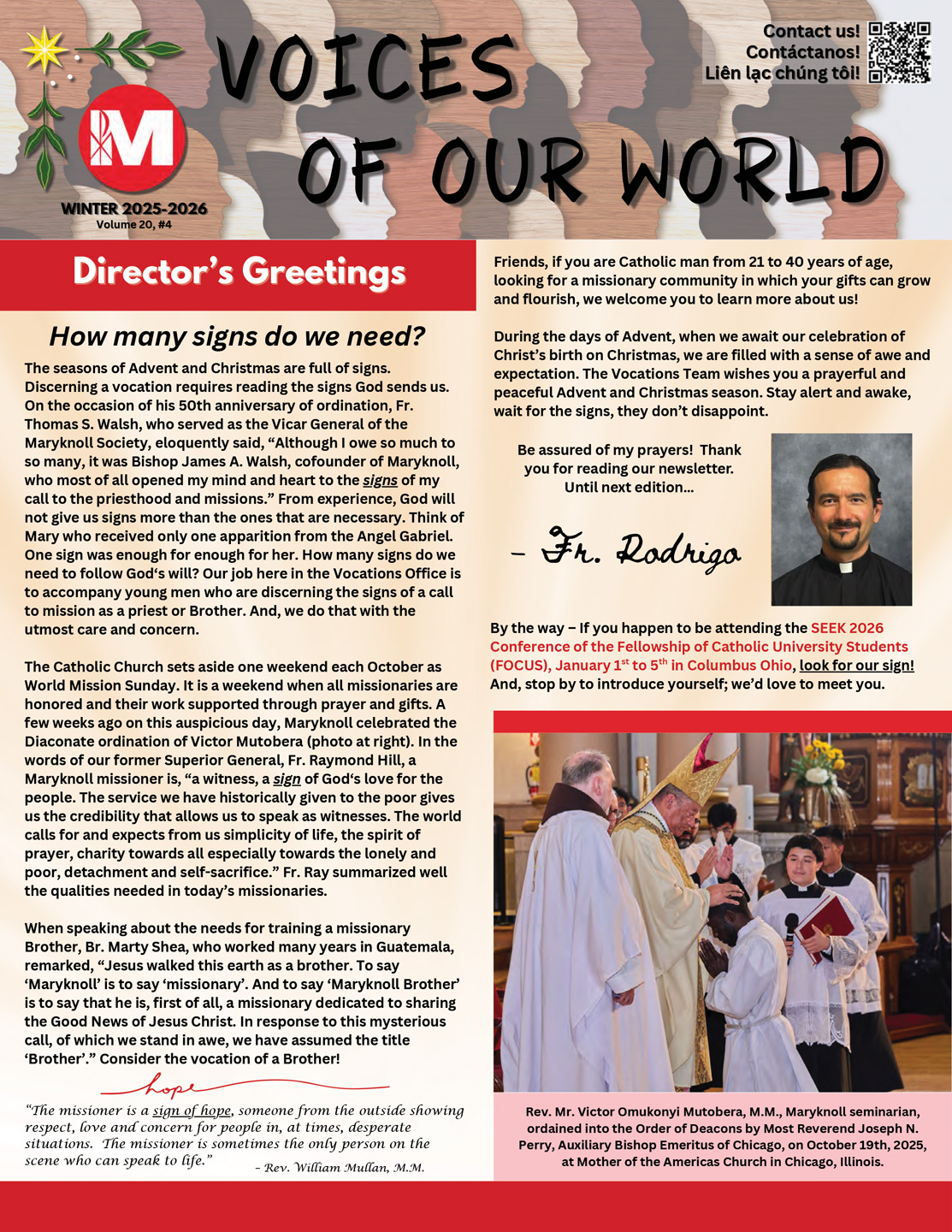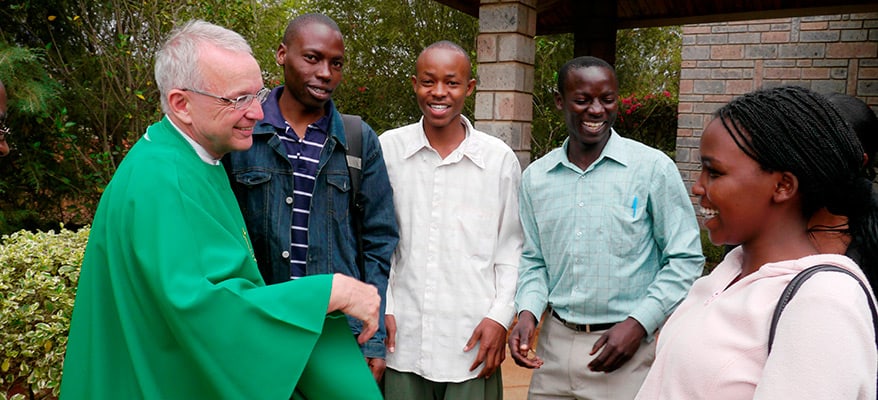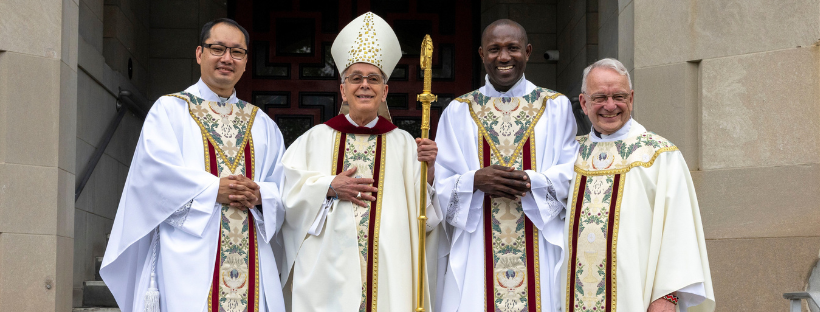A Shared Experience
When I saw the headlines that the first American Pope had been elected, I was pleasantly surprised to learn that the new Pope, formerly Cardinal Robert Prevost, OSA, had received his Master of Divinity degree from Catholic Theological Union (CTU), the same seminary where I had begun studying just ten years later. CTU is located on the south side of Chicago; it prides itself in not only being a seminary, but a school of ministry located in a large urban area with diverse opportunities for serving people from all walks of life. The mission of CTU is to prepare leaders for the Church who are rooted in Catholic tradition and who respond to the needs of contemporary society with a special emphasis on cross-cultural ministry and global mission.
When I studied there, CTU hosted students from more than twenty different countries. Over half of the student body were laity preparing for ministry, many of them women. This gave seminarians a unique opportunity to be formed in a church marked by diversity – experience important for any church leader today, especially those preparing for a missionary vocation.
CTU is unique in that it is sponsored by more than twenty different Catholic religious communities. It also maintains strong relationships with theological schools of other Christian denominations as well as non-Christian faith traditions. This helped to instill within me a deeper appreciation for ecumenism and inter-religious dialogue.
It gives me great pride to know that Pope Leo XIV most likely had similar experiences in his formative years as he approached ordination. He obviously also has a strong grounding in Augustinian spirituality as a member of that religious community. In addition, he served for many years as a missionary in Peru, both as priest and bishop. This is an experience in itself that can be deeply transformative, especially when one walks closely alongside the local people.
Perhaps because of this, Pope Francis showed tremendous trust in Bishop Prevost by bringing him to Rome, making him a key person in the appointment of new bishops, and elevating him to cardinal. We can be confident that Pope Leo XIV shares Pope Francis’ pastoral values and vision of ministry. Finally, Cardinal Prevost’s choice of the name, Leo, is significant – recalling Pope Leo XIII, the pope considered to be the father of modern Catholic Social Teaching. In this way, Pope Leo XIV signals his own commitment to human dignity, social justice, economics in service to humanity, and the just organization of society. All of this gives me great hope for the Church under the leadership and vision of Pope Leo XIV.

Fr. Dennis greeting parishioners on mission in Brazil




